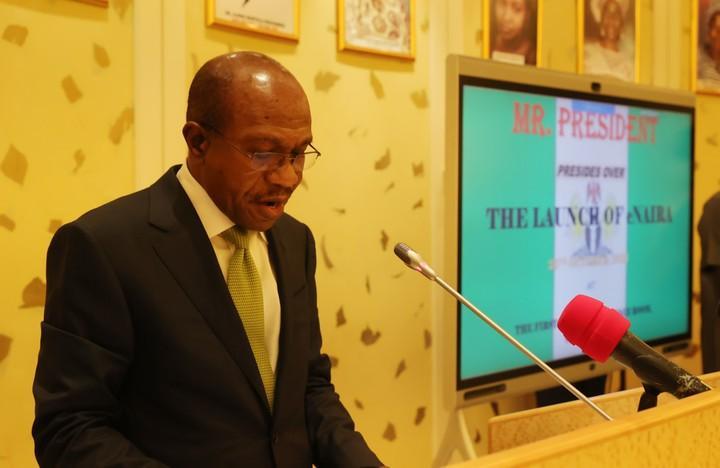- SEC Orders Suspension of Oando Shares, Audit of Firm
The Nigerian Stock Exchange, on Wednesday, suspended trading on the shares of Oando Plc as directed by the apex regulator, the Securities and Exchange Commission. SEC also said it planned further investigation and audit of the firm.
Some shareholders of Oando, in separate interviews, called for the suspension of the management of Oando Plc following the recent findings by SEC that the company breached the provisions of the Investments and Securities Act 2007.
The Nigerian capital market apex regulator also said it suspected insider dealing, discrepancies in the shareholding structure of the company, related party transactions not conducted at arm’s length, and a breach of the SEC Code of Corporate Governance for Public Companies.
SEC had received two petitions from Alhaji Dahiru Mangal and Ansbury Incorporated. The commission said it carried out a comprehensive review of the petitions and made the above findings among others.
While reacting to the development, the National President, Constance Shareholders Association of Nigeria, Alhaji Shehu Mikail, called for a proper forensic audit of Oando’s activities, which he said would be effective if the current management of the company was asked to step down in the interim.
He said in a telephone conversation with our correspondent, “The audit process must be conducted by a first-class audit firm and there should not be any form of interference by the management of Oando.
“The current management should be asked to step aside if a thorough job must be done. This will make shareholders and other stakeholders in the company to have confidence in the exercise.”
Another shareholder, who spoke to our correspondent in confidence, said if there was any way the regulator could keep the management out of the process, it should be done.
“We don’t mind some people in the current management step down for us to know what is actually happening in our company. We don’t need any more cover up,” the shareholder insisted.
SEC said its primary role as apex regulator of the Nigerian capital market was to regulate the market and protect the investing public.
It added, “The commission notes that the above findings are weighty and therefore need to be further investigated. After due consideration, the commission believes that it is necessary to conduct a forensic audit into the affairs of Oando Plc. This is pursuant to the statutory duties of the commission as provided in section 13(k), (n), (r) and (aa) of the ISA 2017.
“To ensure the independence and transparency of the exercise, the forensic audit shall be conducted by a consortium of experts made up of auditors, lawyers, stockbrokers and Registrars.
“To further ensure that the interest of all shareholders of Oando Plc is preserved in the course of the exercise, the commission directed the Nigerian Stock Exchange to place the shares of Oando Plc on technical suspension.
“However in view of the fact that it is not technologically feasible for the Exchange to effect a technical suspension except after 48 hours, the commission directed as follows: Effective for forty-eight (48) hours from today, October 18, 2017 to October 20, 2017, the NSE should implement a full suspension in the trading of the shares of Oando Plc; and effective from October 20, 2017 and until further directive, the Exchange should implement a technical suspension in the shares of Oando Plc.”
The National President (Emeritus), Independent Shareholders Association of Nigeria, Sunny Nwosu, in a telephone interview, said the suspension of trading on Oando’s shares was in the interest of shareholders, adding that such move would prevent more damage to the company’s share price, which had received serious bashing in recent times.
In a post, analysts at Vetiva Capital Management Limited, said the decision to suspend the shares of the company, by its understanding, was to ensure the independence and transparency of the forensic audit to be conducted on the company and to ensure that the interest of all shareholders of Oando Plc was preserved during the exercise.
Meanwhile, in a letter signed by the General Counsel/Head of Regulation, NSE, Tinuade Awe, the Exchange notified all dealing members of the SEC’s position.
The letter read in part, “Effective for 48 hours from today, October 18, 2017 to October 20, 2017, the Exchange should implement a full suspension on the trading of the shares of Oando Plc; and effective from October 20, 2017 and until further directive, the Exchange should implement a technical suspension on the shares of Oando Plc.
“A full suspension is the halt of trading activities in a listed security for a period. A technical suspension is the interruption of price movement in a listed security for a period so that any dealings in the securities, which occur during the period of the suspension, will not result in any change in price.”
It added, “In the 48-hour period commencing today, there will be no trading in the shares of Oando Plc. Thereafter, effective October 20, 2017, investors will be able to trade in Oando Plc’s shares but such trading will not result in any movement in the price of the shares.”
Oando Plc said on Wednesday it had received a communication from the NSE suspending trading in its shares, as directed by SEC, and that it was reviewing the correspondence.
Oando added that it would state its position as soon as possible as it was committed to acting in the interest of all shareholders.


 Naira4 weeks ago
Naira4 weeks ago
 Naira4 weeks ago
Naira4 weeks ago


 Naira4 weeks ago
Naira4 weeks ago




 Naira3 weeks ago
Naira3 weeks ago
 Commodities4 weeks ago
Commodities4 weeks ago


 Sport Business4 weeks ago
Sport Business4 weeks ago


 News3 weeks ago
News3 weeks ago


 Banking Sector4 weeks ago
Banking Sector4 weeks ago























